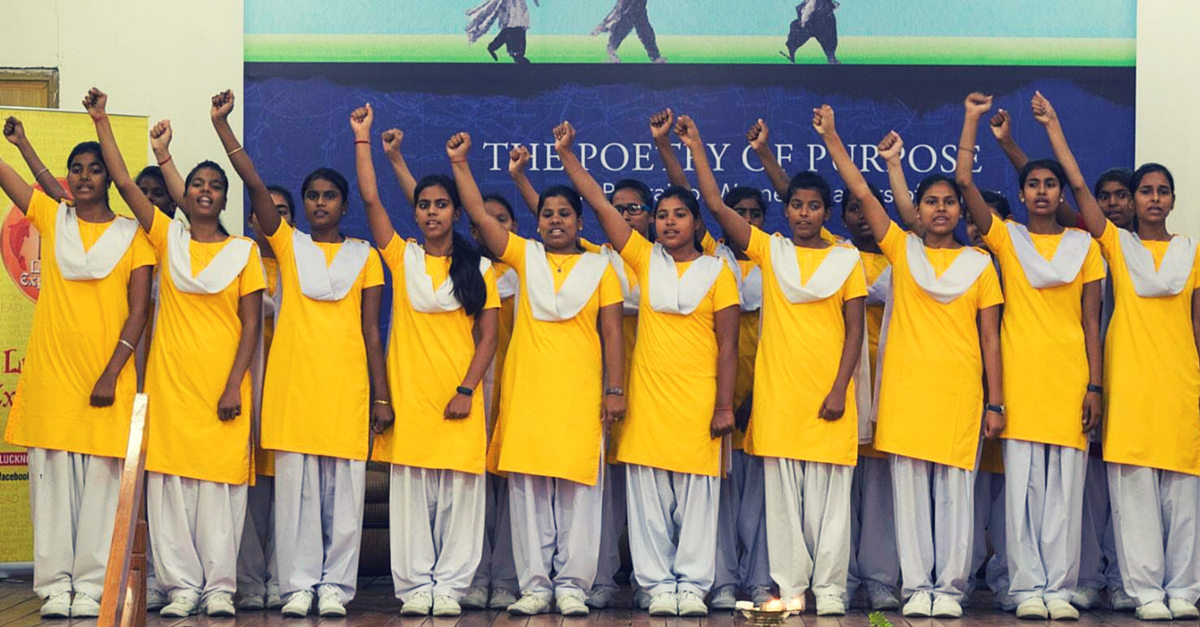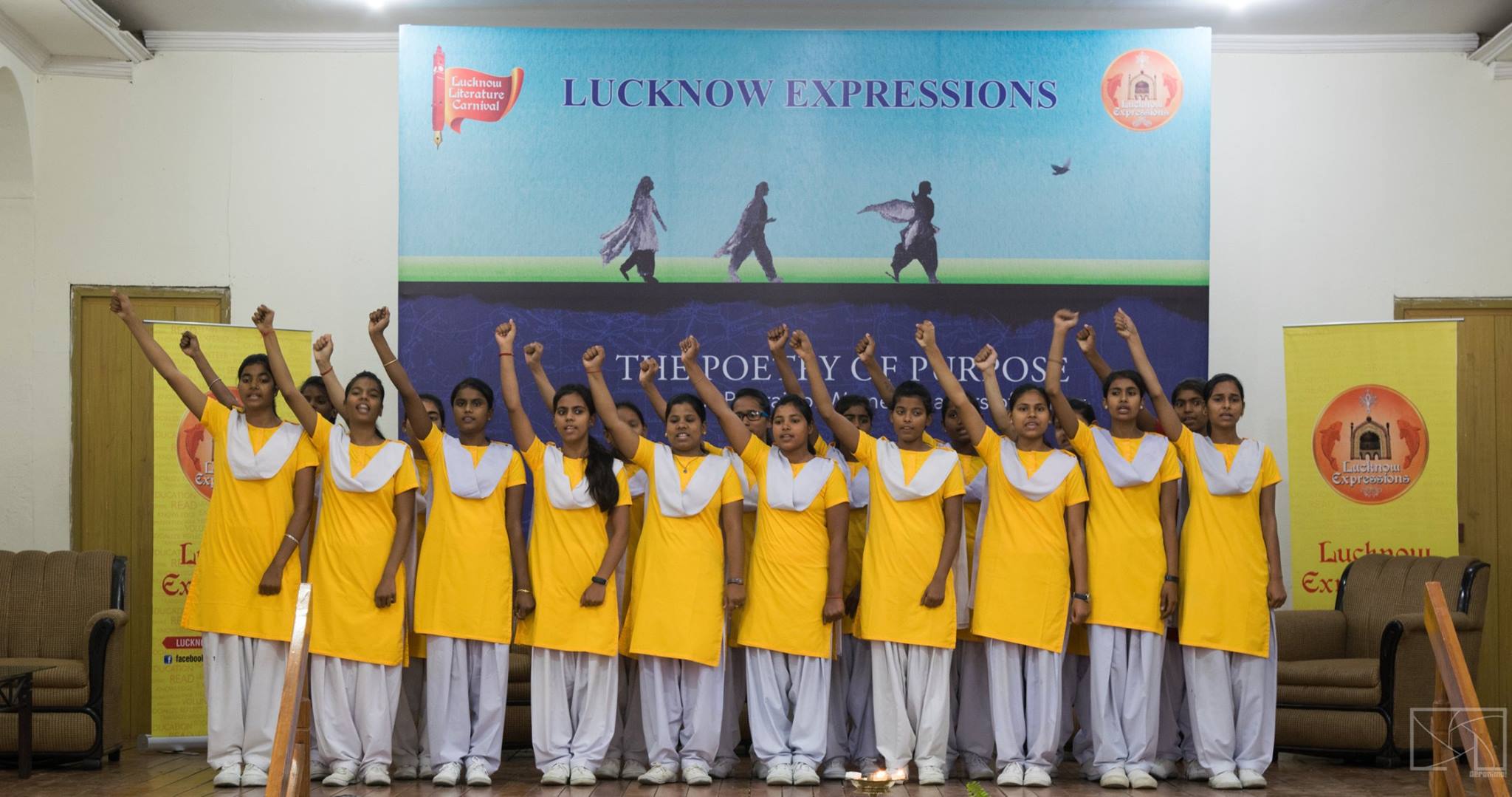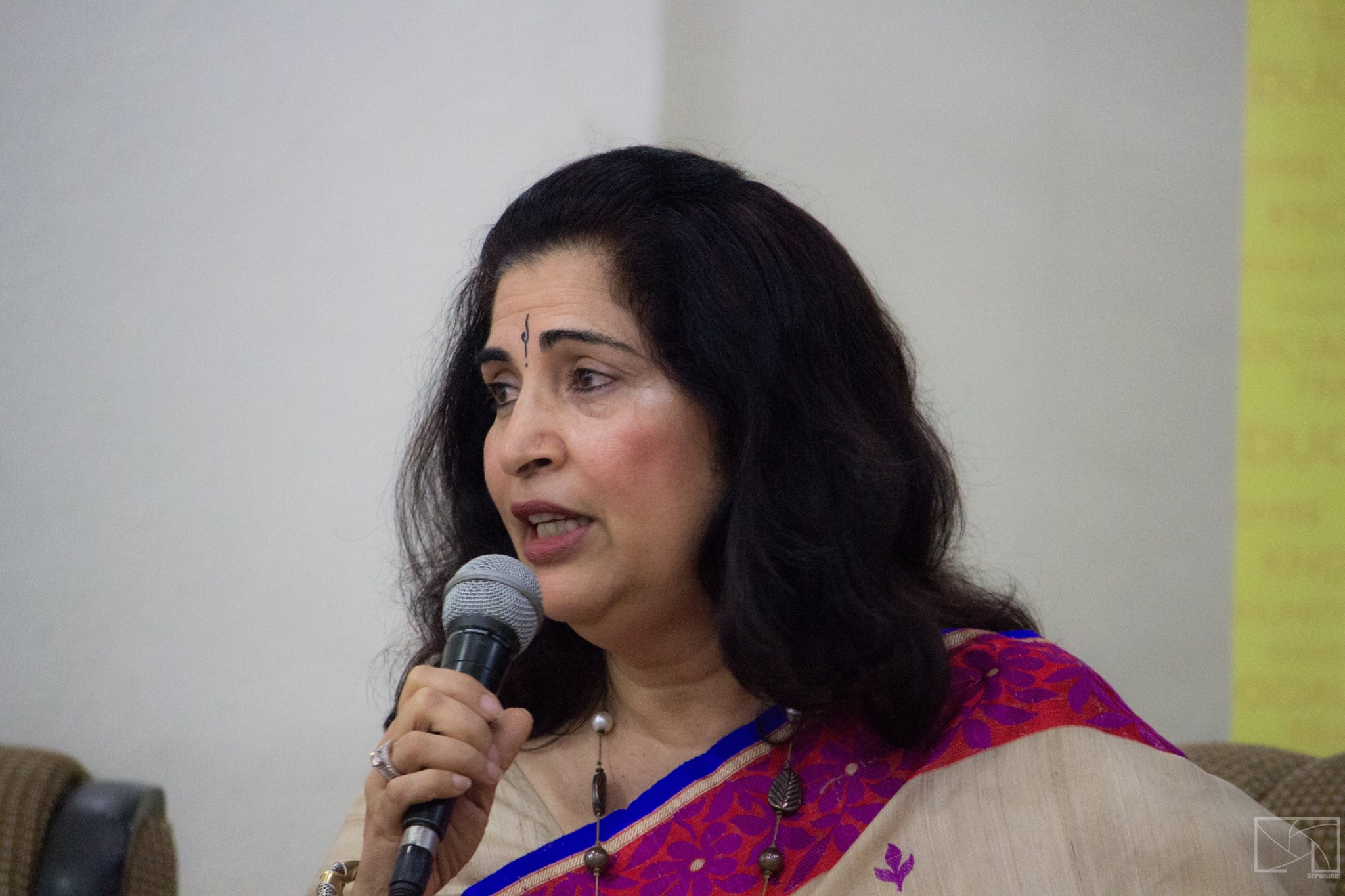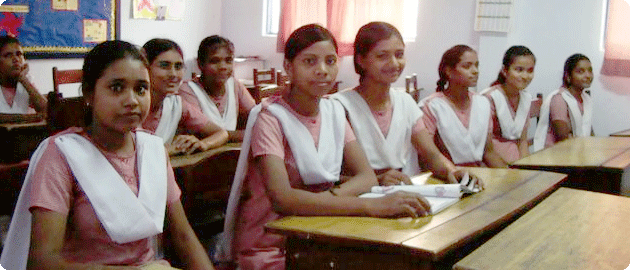One amazing school is giving underprivileged girls their first lesson in Feminism
From poverty and violence to quality education and knowledge about their rights, the lives of these girls have taken a complete turn. All thanks to one amazing school run by one amazing lady in Lucknow.

From poverty and violence to quality education and knowledge about their rights, the lives of these girls have taken a complete turn. All thanks to one amazing school run by one amazing lady.
When Dr Urvashi Sahni was invited on stage at the Lucknow launch of ‘The Poetry of Purpose’, a book profiling 15 inspiring women from across India, she brought along with her Laxmi, Khushboo, Sunita, Kunti, Rama and Aarti, all young graduates of Prerna, a high school for underprivileged girls founded by Dr Sahni in the city way back in 2003.
Each one took to the microphone confidently to talk about her life before a cheering audience.
Their life stories were quite similar – most hailed from a lower caste family and had faced poverty, illiteracy and violence till they found, and eventually graduated, from Prerna.

Set up over a decade ago with four teachers and 80 girls from the surrounding slums, Prerna today extends quality education to over 700 girls from economically depressed families with financial support from donors. After finishing school, some of these young ones find employment as teachers or clerks while others choose to earn as well as study further at the university. And once they start earning a regular income, many are not just able to support the education of their younger siblings but they also take care of their parents and grandparents.
One after the other, the girls who accompanied Dr Sahni talked about the environment they were born in and the space that they have managed to create for themselves now, despite the odds. Above all, each one had found a voice to share her journey of struggle and her aspirations for the future. Each one revealed how she has understood that she is no less than the men in her family or, for that matter, in society.
“I was so proud of having found myself, to have had the courage to find myself. It was the hardest thing I have ever had to do. For the longest time I didn’t believe in myself. That is because in India a woman is not expected to have a sense of self; everything and everyone tells you not to have a self. You are made to feel very guilty if you want to have your own identity,” Dr Sahni points out.
For one who was married as soon as she turned 18 and who completed her graduate and post-graduate studies as she brought up two daughters, Dr Sahni understands the value of education.

In fact, as soon as she realised that education is a powerful tool to discover one’s self, she first pushed herself to finish her studies no matter what the challenges. That helped her to discover who she was and also to recognise the oppression that most other women face in their everyday life.
Coming from an upper middle class family, Dr Sahni was sent to a first-rate school to gain a competent education. Yet, she recalls how where she learnt how to read and write she gained little knowledge of anything else. For instance, she was taught nothing about herself or of her rights as a woman. “I was given skills but was not taught to use the skills for myself. I was not taught that I have the right to my own life. Over time, I came to the conclusion that education should really be about this – about building the self,” asserts the educator, who did her graduate studies in the US and then came back to her hometown Lucknow to establish Study Hall Educational Foundation (SHEF) in 1995 where girls’ empowerment remains a key part of the curriculum.
The Foundation has established several schools for middle-class urban students, children with special needs, marginalised girls as well as youth in remote, rural parts of the state. The schooling in all these institutions is uniformly focused on creating a feminist perspective in the students, something that Dr Sahni had acutely found lacking in her own learning.
“We use the Critical Feminist Pedagogy approach at Prerna to enable girls to gain a feminist stance from a very young age,” she explains. This approach helps her to equip the girls to meet tough challenges in life, particularly discrimination based on gender and class. They discover ways to not only fight but successfully overcome it as well.
Dr Sahni’s own search for the self coincided with the coming of age of feminist pedagogy ideas that attracted academicians in the 1980s for its interdisciplinary effort to challenge age old assumptions about teaching. It was around the same time that Critical Feminist Pedagogy had forced issues of gender and power to the core of the learning process. At present, she is extremely proud of the Prerna Girls School where multimodal tools, such as critical dialogues, drama, digital stories and music, are being used to educate youngsters with the sole purpose of building a self. The belief is that there has to be a relationship between the self and the world, a relationship of mutual respect and care.
A dedicated staff of 16 teachers works with the children to facilitate them to rise above the fundamental obstacles that are posed by illiteracy, poverty, violence and prejudice.
The girls, who religiously make their way from the cramped slums in the vicinity, have access to the same infrastructure and facilities enjoyed by students of the up-market Study Hall School, including a hugely popular computer education course.

Photo: www.studyhallfoundation.org
Prerna provides vocational training to those who are interested and they are later hired as interns by the Study Hall School and Dosti, another school for children with special needs run by the SHEF.
In this way they are able to earn a small stipend as they assist senior class teachers and computer teachers even before they have finished school. Depending on what they want to do after they complete their education, Prerna graduates are encouraged to apply for jobs as lab assistants, library assistants, receptionists or find work in the school canteen.
It is her pride in Prerna, which runs classes from kindergarten to Class 12 for those who are otherwise severely disadvantaged in every way, which inspired American writer and photographer Mick Minaird to pick Dr Sahni to be featured in ‘The Poetry of Purpose’, a lush hardback book in words and photographs that he has co-authored with Dr Shashi Gogate, a practicing pathologist.
Incidentally, Dr Sahni is the only woman from Lucknow to be part of the inspiring collection that includes portraits of celebrated feminist activist Kamla Bhasin and Vimla Devi, a powerful elected village head in Mewat, Haryana, among others. “We travelled all over India for over two years before short-listing 15 women leaders for the book simply to make them and their contributions to society visible. I found that these women are scaling heights of the human spirit and improving the lives of ordinary people in extraordinary ways to create not a perfect society, but simply to improve it,” states Minaird. His description certainly fits Dr Sahni’s efforts.
Like this story? Or have something to share? Write to us: [email protected], or connect with us on Facebook and Twitter (@thebetterindia).
If you found our stories insightful, informative, or even just enjoyable, we invite you to consider making a voluntary payment to support the work we do at The Better India. Your contribution helps us continue producing quality content that educates, inspires, and drives positive change.
Choose one of the payment options below for your contribution-
By paying for the stories you value, you directly contribute to sustaining our efforts focused on making a difference in the world. Together, let’s ensure that impactful stories continue to be told and shared, enriching lives and communities alike.
Thank you for your support. Here are some frequently asked questions you might find helpful to know why you are contributing?


This story made me
-
97
-
121
-
89
-
167











